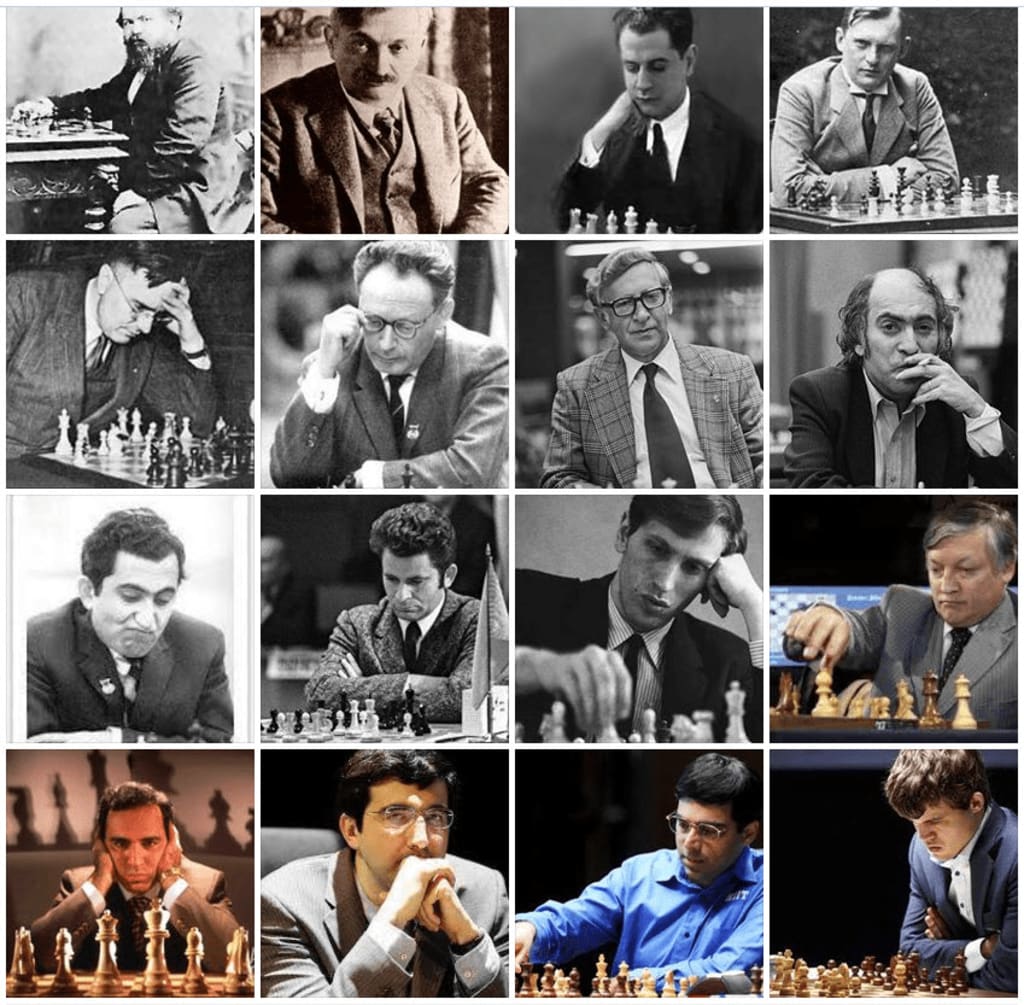Checkmating Stress: The Surprising Benefits of Chess
"How a Game of Strategy Can Boost Your Brainpower, Improve Your Focus, and Enhance Your Mental Well-being"

Chess is a timeless game that has captivated players for centuries. From its humble beginnings in ancient India to the global phenomenon it is today, chess has a rich and fascinating history. In this article, we'll explore the game's history, the champions who have mastered it, and the benefits of playing chess.
I. Introduction
Chess is a strategic game played by two players on a board with 64 squares arranged in an 8x8 grid. The game involves moving pieces across the board to attack the opponent's king and achieve a checkmate. While the game's basic rules have remained the same over time, its strategies and tactics have evolved with the times.
II. A Short History of Chess
The origins of chess can be traced back to ancient India, where the game of chaturanga was played. Chaturanga was a four-player game that used dice to determine moves. The game was then spread to Persia, where it evolved into shatranj, a two-player game that used similar pieces to chaturanga. In Persia, the game was introduced to the Islamic world, where it became a popular pastime among scholars and rulers. The game was then brought to Europe by traders and diplomats, where it underwent significant changes, including the introduction of new pieces such as the queen and bishop. By the 15th century, chess had become the game we know and love today.
III. Champions of Chess
Over the years, many players have distinguished themselves as chess champions, winning countless tournaments and earning global recognition. Some of the most notable champions in chess history include:
A. Anatoly Karpov - Karpov was world champion from 1975 to 1985 and is known for his defensive playing style. He is also the record holder for the longest tenure as the world champion.
B. Garry Kasparov - Kasparov is widely regarded as one of the greatest chess players of all time. He was the world champion from 1985 to 2000 and is known for his aggressive and innovative style of play.
C. Viswanathan Anand - Anand is the first chess grandmaster from India and is known for his versatility and adaptability in playing styles. He was world champion from 2007 to 2013 and has won numerous other prestigious titles.
D. Magnus Carlsen - Carlsen is the current world champion and has held the title since 2013. He is known for his strategic playing style and has been referred to as a "chess prodigy".
IV. Benefits of Playing Chess:
Chess has been recognized for its numerous benefits, both mental and social, for players of all ages. Here are just a few of the many advantages of playing chess:
A. Improves cognitive skills: Chess requires players to think ahead and make strategic decisions, which can help improve cognitive skills such as memory, problem-solving, and critical thinking.
B. Boosts creativity: Chess is a game that requires players to be creative and think outside of the box. This can help develop creativity and imagination, which can be beneficial not only in playing chess but also in other areas of life.
C. Enhances social skills: Chess can be played both online and in person, which makes it a great way to meet new people and develop social skills. It also teaches players the importance of fair play, sportsmanship, and respect for others.
D. Reduces stress and anxiety: Playing chess can be a great way to relieve stress and anxiety, as it requires players to focus on the game and block out distractions. The game also provides a sense of achievement and accomplishment, which can boost self-esteem and confidence.
E. Improves academic performance: Studies have shown that playing chess can improve academic performance, especially in subjects such as mathematics and science. This is because the game helps develop problem-solving and analytical skills, which are essential in these subjects.
F. Fosters a sense of community: Chess is played all over the world and has a vibrant community of players. Playing chess can help foster a sense of community and belonging, as players can connect with others who share their passion for the game.
V. Conclusion
In conclusion, the game of chess has a rich history, global champions, and countless benefits. We've only scratched the surface of what there is to know and learn about this timeless game. From its humble beginnings in ancient India to the strategic battles fought by modern-day grandmasters, there is a lot more to say about chess. However, we hope that this article has given you a glimpse into the world of chess and its many wonders. So why not pick up a chessboard and discover for yourself what this game has to offer? and see what benefits you can gain from this timeless game?
About the Creator
Rafeeq Ismail
Rafeeq Ismail(Civil Engineer) a seasoned writer producing quality content on a variety of topics such as Health &Fitness, Motivation, Sports etc. Dedicated to delivering well-researched, engaging articles that inform and entertain readers.






Comments
There are no comments for this story
Be the first to respond and start the conversation.